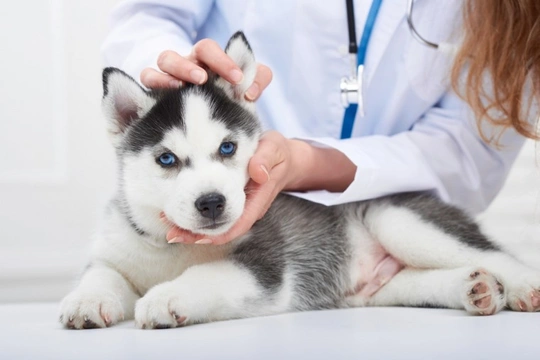
Five concerns dog owners have about veterinary care and coronavirus, addressed
Coronavirus is naturally causing great concern to everyone in the UK and more or less worldwide on a number of different levels, from the day to day logistics of coping with empty shelves in the supermarkets to concern for our health and that of our loved ones.
These are worrying times in general, and the uncertainty we’re facing right now in the early stages of the coronavirus epidemic is a large part of the problem; there are so many variables and things that we cannot predict with any certainty at this stage, which in turn, helps to contribute to the general anxiety.
For dog owners, there are a whole range of other variables to consider too, from whether or not supply chain issues will lead to a shortage of dog food, to whether or not vets are going to keep operating their clinics as the human pandemic continues its course.
When it comes to the coronavirus epidemic and veterinary care, vets in the UK are committed to the health of our pets and to continuing to provide their essential services as far as possible. Understandably, how this looks will change and adapt as the coronavirus epidemic progresses, and it is possible some clinics will be forced to close at some points due to staff sickness.
However, all areas of the UK should still be covered with some level of veterinary provision whilst we tackle coronavirus; although with this provision will come some changes and limitations.
This article will answer five of the most common concerns that dog owners in the UK are asking their vets about veterinary care for dogs during the coronavirus pandemic. Read on to learn more.
Will there be medication shortages?
Medication shortages have already hit the shelves in human healthcare; paracetamol and cough and cold products are in short supply. However, this isn’t because of shortages in the supply pipeline, but because of panic buying and stock piling on the part of people.
Compounded with this, staff sickness now and down the line will slow and limit the ability of supply chains to re-stock their shelves; so, will the same thing happen in veterinary medicine?
Well in theory it could, if vets took to panic buying and stockpiling veterinary drugs like the public did, but this is unlikely.
People need veterinary prescriptions to get veterinary medications, and as healthcare professionals and scientists, vets aren’t going to start over-issuing these and causing shortages and problems for other clinics and pet owners.
Whether in the future supply chain shortages occur or are impacted by the knock-on effect of coronavirus on staffing in the manufacture and logistics industries is impossible to predict, but stockpiling will only worsen any impact if so, not negate it.
Don’t ask your vet for medication your dog doesn’t need, but discuss with them how much you should hold as a buffer.
Will there still be operations?
Whilst your vet has the appropriate facilities, tools and support team to carry out essential operations, they will continue to operate as normal.
It is possible once more that staff illness may impact on this and mean that routine and non-urgent ops might be postponed (like spay and neuter procedures, for instance, if an emergency took precedence) but as far as possible, clinics will continue to offer their services as comprehensively as possible with safety in mind.
If in an emergency your vet was unable to handle an operation due to lack of staff, you would be referred to another clinic as soon as possible.
What about referrals and specialist care?
On which note, referral clinics and veterinary specialists will still be operating as near to normal capacity as they can too, once more with the caveat of the limitations that may be caused by staff shortages.
Once more this is apt to mean that non-urgent cases will be delayed if needed, and that emergency situations, urgent cases, and procedures required to ease pain and suffering will be those given first priority, which might mean postponement of scheduled but non-urgent procedures.
What about inpatients?
Dogs that require inpatient care will still be treated as normal as long as once more the clinic has the staff and infrastructure to support this. If this is not possible due to absence and sickness, you may find that our dog is transferred to another clinic, or referred to another vet, that can help.
You may be limited or stopped from visiting your dog when they are inpatient as part of coronavirus transmission reduction protocols.
What if I can’t take my dog to the vets?
If your dog needed to see a vet but you were unable to take them because you know or suspect you have coronavirus, or are in an at-risk group and/or are otherwise self-isolating, the first step should be to see if you can arrange for someone else to take your dog in your place, if this can be achieved safely.
If you cannot make provision for this, call your vet; they might offer a number of suggestions ranging from a video consult, to a pet taxi to bring your pet without you, to even someone coming out to collect your dog and bring them back.
Whilst vets usually avoid house visits or getting involved in pet transport as this is time consuming and can be complex, vets work at all times with the wellbeing of both dogs and owners in mind; and during these unusual times, they may be able to offer suggestions or novel approaches to ensure your dog gets the help they need, so always ask.



